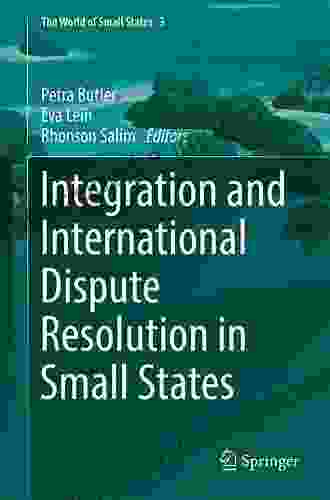Small states, often characterized by their limited size and resources, navigate a complex international landscape where integration and dispute resolution intertwine. In the modern era of globalization, regional and international organizations play a crucial role in facilitating cooperation and resolving disputes among small states. This article examines the intricate relationship between integration and international dispute resolution in small states, exploring the benefits, challenges, and strategies employed to foster international harmony.
Benefits of Integration for Small States
Integration through regional and international organizations offers numerous advantages for small states. By joining such organizations, they can:
- Enhance their security: Regional organizations often provide a framework for security cooperation, fostering trust and cooperation among members and reducing the risk of conflict.
- Promote economic development: Integration through trading blocs can expand market access, attract foreign investment, and boost economic growth.
- Increase their political influence: Collective action through international organizations allows small states to amplify their voices and influence decision-making on global issues.
- Access specialized expertise: International organizations often provide technical assistance and capacity-building programs, empowering small states to address complex challenges.
Challenges of Integration for Small States
While integration offers significant benefits, small states also face challenges:
- Limited resources: Small states may struggle to fulfill their obligations and contribute effectively to regional organizations due to resource constraints.
- Power imbalances: Regional organizations can be dominated by larger or more powerful states, potentially overshadowing the interests of small states.
- Loss of sovereignty: Integration may involve some degree of sovereignty transfer, which small states may be reluctant to accept.
- Internal political dynamics: Integration can be politically controversial within small states, with concerns about economic or cultural impacts.
Dispute Resolution Mechanisms for Small States
Effective dispute resolution mechanisms are essential for small states to protect their rights and interests within regional and international organizations. Common approaches include:
- Diplomatic negotiations: Direct negotiations between disputing states remain the primary means of dispute resolution.
- Good offices and mediation: Third parties, such as the United Nations or regional organizations, can facilitate negotiations and provide impartial guidance.
- Arbitration and adjudication: Disputes can be submitted to international tribunals or courts for binding decisions.
- Intergovernmental organizations: Regional organizations often establish specialized dispute resolution bodies, tailored to the specific needs of their member states.
Strategies for Enhancing Integration and Dispute Resolution
Small states can adopt various strategies to optimize their participation in regional organizations and strengthen their dispute resolution capacities:
- Capacity building: Investing in training and education to enhance diplomatic skills and knowledge of international law.
- Selective integration: Carefully weighing the benefits and costs of integration, and prioritizing organizations that align with their national interests.
- Coalition building: Collaborating with other small states or like-minded partners to amplify their voices and influence.
- Leveraging international assistance: Seeking support from international organizations and development partners to strengthen dispute resolution mechanisms.
- Promoting rule of law: Emphasizing the importance of adhering to international law and norms, fostering a culture of peaceful dispute resolution.
The relationship between integration and international dispute resolution in small states is a complex and multifaceted one. While integration offers significant benefits, it also presents challenges that must be carefully navigated. Effective dispute resolution mechanisms are essential for small states to protect their rights and interests within regional and international organizations. By adopting strategic approaches, small states can harness the advantages of integration while mitigating its potential risks. As the global landscape continues to evolve, the interplay between integration and dispute resolution will play a crucial role in shaping the future of international relations for small states.


























































































